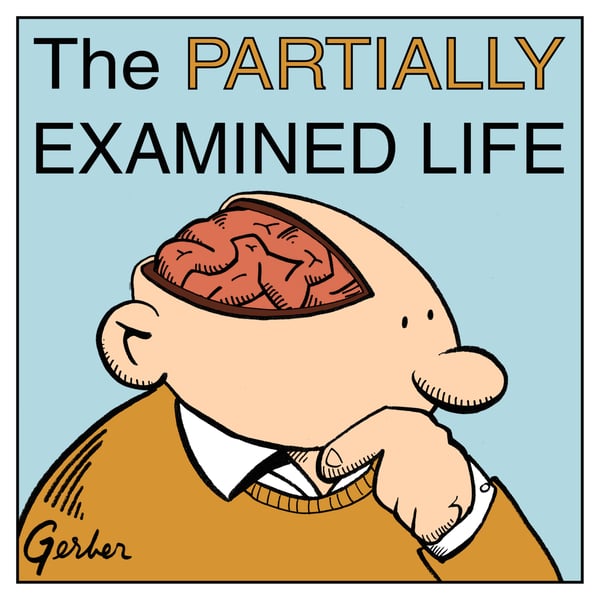Ep. 363: Franz Brentano's Moral Epistemology (Part One)
The Partially Examined Life Philosophy Podcast
Mark Linsenmayer
4.6 • 2.3K Ratings
🗓️ 17 March 2025
⏱️ 49 minutes
🧾️ Download transcript
Summary
On "The Origin of the Knowledge of Right and Wrong" (1889). What justifies basic moral facts? Brentano claims that right there in our experience, we can rationally sense with complete certainty that certain kinds of preferences are good ones, and others are not. This take on intuitionism is a response to Kant that (like Kant) cuts between the traditional epistemic categories of rationalism and empiricism, and Brentano's descriptive psychology kicked off the whole project of phenomenology.
Get more at partiallyexaminedlife.com. Visit partiallyexaminedlife.com/support to get ad-free episodes and tons of bonus discussion.
Sponsors: Get a $1/month e-commerce trial at shopify.com/pel. Learn about African history at historyofafricapodcast.podbean.com.
Transcript
Click on a timestamp to play from that location
| 0:00.0 | You're listening to The Partially Examined Life, a podcast by some guys who were at one point set on doing philosophy for a living, but then thought better of it. |
| 0:14.9 | Our question for episode 363 is something like, are there ethical truths? And if so, how can we know them? We read Franz |
| 0:22.7 | Brantano's lecture, The Origin of the Knowledge of Right and Wrong in 1889. More information |
| 0:28.7 | about the text in the podcast, please see partially examined life.com. This is Mark Linsonmeyer |
| 0:33.5 | in Madison, Wisconsin, who in choosing the Twitter handle, Big Balls, 2025, is exhibiting a preference with the character of rightness. |
| 0:41.0 | This is Seth Paskin, carrying no innate moral principles in Austin, Texas. |
| 0:47.1 | This is Wes All one, trying to live intentionally in Cambridge, Massachusetts. |
| 0:52.4 | All right, all right. So we're entering a new unit, you might say. |
| 0:56.5 | We want to go back to ethics. |
| 0:59.2 | We had Edith Stein on our list for a while. |
| 1:03.5 | We also had this related one from Max Scheler. |
| 1:06.3 | These are both early 20th century followers of Husserl in Germany phenomenologists, so moral phenomenology, |
| 1:13.3 | and it became clear that the Shaler was earlier than the Stein, and Stein refers to the Shaler, |
| 1:19.2 | so I was like, all right, we'll do that first. Well, then I started the Shaler, and it referred to |
| 1:24.1 | this lecture by Franz Brantano, who is the grandfather of phenomenology. |
| 1:30.0 | If Edmund Husserl is the father of phenomenology, Brentano is the grandfather. |
| 1:34.1 | I have his fat psychology book. |
| 1:36.1 | I think we want to do that. |
| 1:38.0 | It's probably as important as the William James psychology book that we spent quite a bit |
| 1:42.8 | of time on from around the same period of time. He invented the idea of intentionality, the aboutness of, I don't know if he |
| 1:49.8 | invented it, but he's the one that everybody refers to, the aboutness of mental contents, |
| 1:54.1 | so that at least in general, you don't have a belief. Yeah, I think he did. He invented intentionality? |
... |
Please login to see the full transcript.
Disclaimer: The podcast and artwork embedded on this page are from Mark Linsenmayer, and are the property of its owner and not affiliated with or endorsed by Tapesearch.
Generated transcripts are the property of Mark Linsenmayer and are distributed freely under the Fair Use doctrine. Transcripts generated by Tapesearch are not guaranteed to be accurate.
Copyright © Tapesearch 2025.

